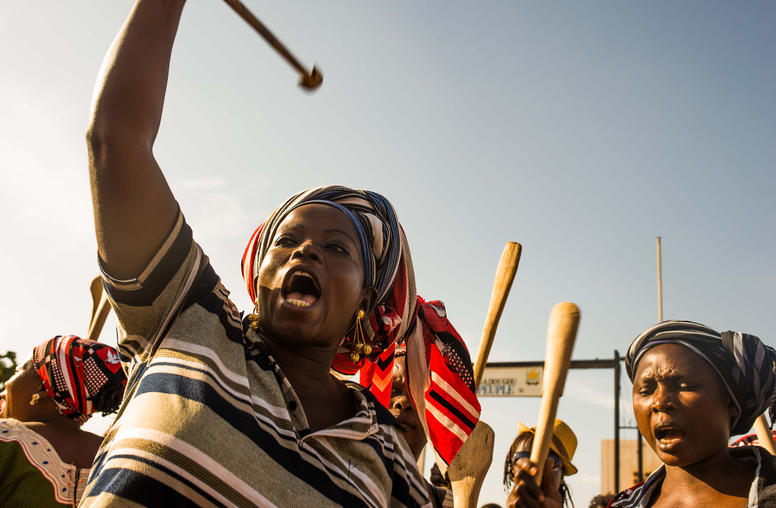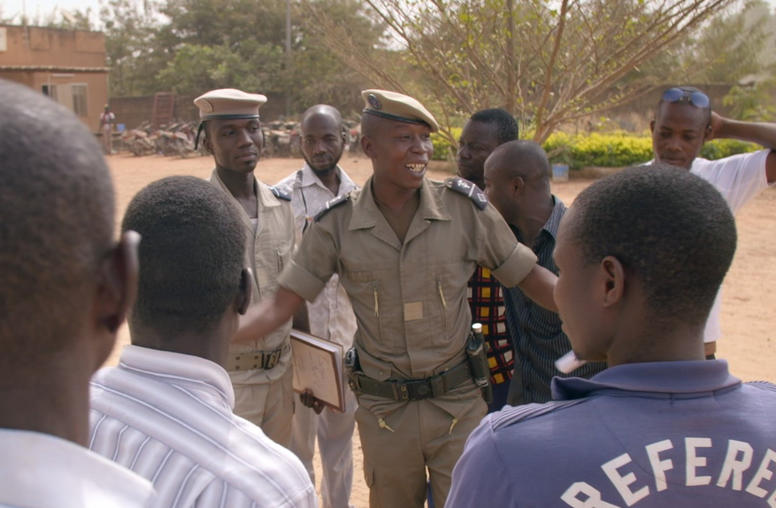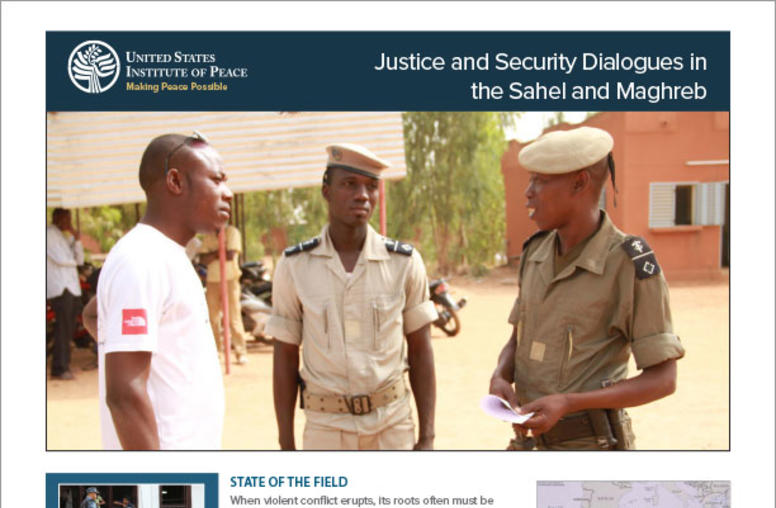Question And Answer
Publications
Articles, publications, books, tools and multimedia features from the U.S. Institute of Peace provide the latest news, analysis, research findings, practitioner guides and reports, all related to the conflict zones and issues that are at the center of the Institute’s work to prevent and reduce violent conflict.

Mobilization, Negotiation, and Transition in Burkina Faso (French)
En octobre 2014, un soulèvement populaire massif a destitué le président de longue date du Burkina Faso, Blaise Compaoré, et conduit à une transition menée par des civils, laquelle a abouti à des élections libres et équitables en novembre 2015. Ce rapport illustre l’importance de la culture nationale du dialogue et du consensus et les avantages d’un vaste et solide réseau entre les groupes de négociation. Bien que la violence dans le pays ait augmenté depuis lors, les enseignements tirés de la transition au Burkina Faso peuvent être d’une aide précieuse pour guider les efforts de mobilisation populaire, les négociations et les perspectives de paix et de démocratie à long terme dans d’autres contextes.

Mobilization, Negotiation, and Transition in Burkina Faso
In October 2014, a massive popular uprising unseated Burkina Faso’s long-time president, Blaise Compaoré, and drove a civilian-led transition that culminated in free and fair elections in November 2015. This report shows the importance of the national culture of dialogue and consensus and the benefit of a vast, resilient network across negotiating groups. Although violence in the country has since increased, lessons from Burkina Faso’s transition can inform the dynamics of popular mobilization, negotiations, and prospects for long-term peace and democracy in other settings.

Amid Rising Sahel Violence, Burkina Faso Builds a Response
A perfect storm of violence is breaking upon Africa’s Sahel. Since late 2018, communal conflicts—many over access to food, water or productive land—have produced thousands of deadly attacks. Across the region, nearly 4,800 people died in conflicts from November to March, according to the violence-monitoring group ACLED. The greatest surge in bloodshed is in Burkina Faso, where communal militias or religious extremists killed 500 people over five months. But amid the dire headlines, governments and civic groups in Burkina Faso and other Sahel countries cite progress in stabilizing communities with a basic step that simply has seldom been undertaken: broad, local dialogues among community groups, police forces and officials. Community leaders and government officials say they are now expanding those dialogues to improve national security policies to help counter the tide of violence.

Justice and Security Dialogues in the Sahel and Maghreb
When violent conflict erupts, its roots often must be found and healed at the community level. Amid such turmoil, however, government officials, police, and community leaders are likely to mistrust each other—a breakdown in relations that opens space for security threats, including violent extremism and organized crime.